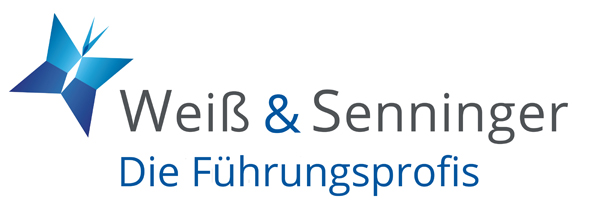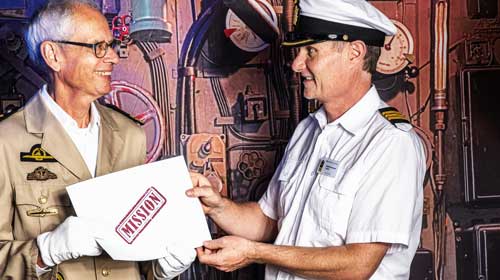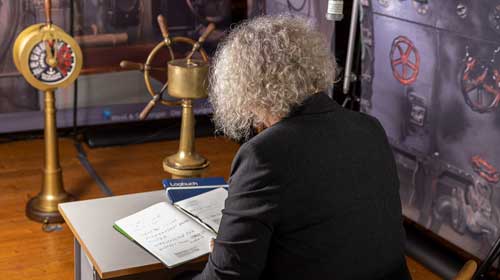True Leadership
Principles of good leadership
Good leadership inspires commitment and ownership!
We distinguish between management and leadership: Management deals with all the urgent tasks that have to be done in everyday life. These are predominantly technical-administrative tasks. In our experience, 80% of management tasks can be delegated. Leadership activities are rather important and rarely urgent. Leadership deals with the future, strategy and further development of employee, customer and business relations. Leadership activities cannot be delegated.
The following leadership principles set a new direction in leadership. Even though leadership is too complex and multi-layered to provide simple and universal answers, these principles can be of help. In the workshop, you can experience the effects of these leadership principles for yourself and compare them with classic leadership behaviour.
For all principles, you will receive practical implementation methods for your everyday leadership.
Future is more important than pastFrom our point of view, leadership should deal more and more often with the future and less with the past. Because only something that is still to come can be changed. Classic leadership wastes a lot of time on reporting and problem analysis. In the workshop you will experience the striking difference how future-oriented conversations have an impact on performance and engagement. |
Self-evaluation is better than external evaluationClassical leadership aims to identify undesirable developments in good time and therefore uses many control mechanisms. Most of them top down. Those who control also retain responsibility. If leadership wants employees to take responsibility, other forms of (self-)control must be found. In the workshop you will experience and discuss methods of employee self-control.
|
Finding solutions is more important than analysing the problemClassic leadership instinctively asks "Why?" and thus illuminates the problem. Problem-focusing often creates stress and pressure to justify for the people involved. Solution-focusing instead opens the space for new ideas and ultimately leads to improvement. Experience the difference between problem and solution focusing and the effect on your commitment! |
Good questions are better than instructionsInstructions clearly communicate to the employee what is to be done - and at the same time the employee no longer needs to think for himself. Whoever gives instructions bears the responsibility for the solution. Instructions are indispensable for certain leadership situations (e.g. in crises, high urgency, rule violations). Classical leadership cements the hierarchy and disenfranchises employees through an overly one-sided directive style of leadership. In our view, it is therefore necessary to be able to decide and act situationally: The more leadership knows how to use the technique of good questions, the more committed and self-initiated the employees become. Because whoever provides the answer also takes responsibility for it.
|
Goals are better than tasksNumerous studies have repeatedly confirmed: those who lead with clear goals instead of tasks have a 30% higher chance of success. If these goals are also agreed upon instead of given, statistically the chance of success doubles. In everyday life, classic leadership too often makes the mistake of assigning tasks instead of agreeing on goals and thus misses great opportunities for success. Here, too, the principle applies: if you octrude instead of agree, you remain responsible.Good leadership therefore steers coordination processes towards genuine commitment with all those involved. In the submarine workshop you will experience the essential difference between leading with tasks and leading with target agreements. This can even be measured!
|
Recognition is better than praise"Nothing said is praised enough" is unfortunately a widespread (cultural) attitude. Classic leadership is quick to point out shortcomings and deviations. Because that is what they are trained to do. True leadership focuses on progress and desirability, on positive examples and successes. Not in the sense of top-down praise, but genuine recognition. This generates confirmation and motivation and thus commitment on the part of the employees.
|
Pre-port is better than reportEvery key figure as well as every report is the past. How much time do you and your team spend looking at figures from the past? We are not saying that this is superfluous. We are saying that it is even more important to look ahead: True Leadership therefore asks about the "pre-port" - about the intentions and goals of employees. For today, for this week, for this month, ....The key question is: "What do you intend to do about this today?" How much time do you invest in talking to your team about (timely) plans and intentions? |
'Obtaining feedback' takes precedence over 'giving feedback'.Giving feedback is, of course, part of everyday leadership. But how does leadership encourage employees to give (constructive) criticism? We believe that a feedback culture can be created more easily when the leader himself/herself is exposed to the feedback of his/her employees. In this way, they can listen and receive information that would otherwise be withheld.
|
Striving for excellence is better than striving for perfectionThose who want to be perfect avoid or suppress mistakes. Those who want to be excellent try to learn from mistakes as quickly as possible.True leadership implements the principle "fail fast - learn fast". This includes an iterative approach, a space for experimentation and a culture of talking constructively about ideas for improvement. Experience in the submarine workshop how you can promote a learning culture in your team.
|
Voting is usually better than determiningTrue leadership aims to achieve genuine commitment among the stakeholders. This can only be achieved with participation and true voting: literally. Every voice is heard! Only with a clear vote is a binding agreement reached. Exceptions to this are crisis management and critical exceptional situations. Learn methods of forming opinions and binding votes in the team in our submarine workshop. |
Any further questions?
write an email!



